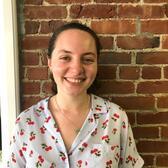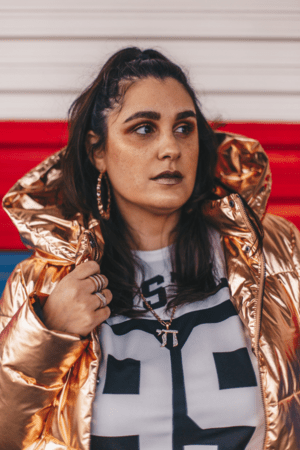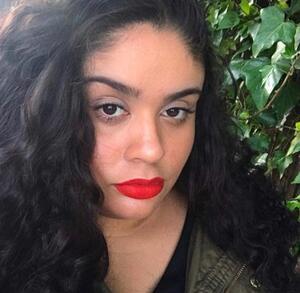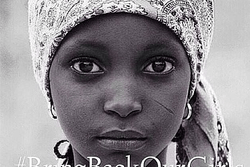A Virtual Sanctuary for Jewish Women of Color
It’s difficult being a Jew in the diaspora. Between constantly having to reaffirm my identity in a Christian-centered society and sometimes even having to emotionally fend off outright antisemitism, being Jewish can be exhausting. Despite the difficulties, I remain privileged in that, as a white Ashkenazi Jew, it does not take long for me to find a sense of community and kinship wherever I go, to find a safe space to be the Jew I want to be. For some in our community, it’s not so easy. Most Jewish spaces are white-dominated and often not welcoming to non-white/non-Ashkenazi Jews. Jewish Women of Color like Yasmine Esther and Erika Bracero have experienced this their whole lives. That is until they discovered Instagram or, I should say, Instagram discovered them. Instagram has given both Yasmine and Erika the diverse and inclusive Jewish community the real world has yet to.
On Instagram, people share photos and videos of their daily lives, expensive vacations, and weight loss pyramid schemes. The social media platform has become the home for many B-list celebrity influencers and has a reputation for its inauthenticity. However, Instagram is not only an app for posting warped, overly-curated images. Instagram has also allowed inclusive, socially aware communities, including one of Jewish Women of Color, to thrive.
Erika, an Ashkenazi, African-American, and Puerto Rican Jew, describes Instagram as “a virtual house” that welcomes all. It has become a platform for activists of all ages to educate each other and their audiences on their own identities, expanding ideas of what a Jew looks like. Many Jews and non-Jews have this “Eurocentric vision of what Jewish is,” according to Erika, and Instagram is helping to smash that notion.
For Yasmine, a Bukharian Ashkenazi and Mizrahi Jew, growing up with "distinctly Semitic features" was extremely difficult. In public school her non-Jewish peers questioned her ethnicity—people often assumed she was Latina—and were quick to mock her. Yasmine reflects, “I was always other, but I wasn’t sure which other.” The constant bullying led her to feel ashamed of her identity and looks; to conform to Eurocentric beauty standards, she waxed her entire face and arms for years. Besides immediate family members, Yasmine had no role models who looked like her.
Outside of public school, her ethnic identity was further minimized and ridiculed, even in Jewish spaces. White Jews, she says, are just as guilty of such racial microaggressions as non-Jews. Although Yasmine is Jewish, she feels isolated and othered in American synagogues and other places she should feel most welcome. Online is often not the safe space she deserves either. For example, when she shares her thoughts on antisemitism—one of the issues she passionately discusses on her account—they are often undermined by white Ashkenazi Jews. Because of her Mizrahi identity, Yasmine says, “People steal my work, steal my content, steal my words, and when it’s regurgitated by someone Ashkenazi, and more ‘palatable’ or fitting to Jewish stereotypes… they praise it, and when I say it, it’s kind of disregarded.” This is a prime example of Mizrahi erasure.
Despite feeling othered in Jewish spaces, Yasmine is adamant about acknowledging the privilege she holds due to colorism. She is still “able to pass through spaces much [more safely] than a Black person or a Black Jewish person.” She notes, “I don’t have to fear the police or being followed in a store or turned down [from] a job. While I may feel uncomfortable in temple I don’t feel unsafe, the way many Black Jews do.” Although she does not post pictures of them online in order to protect their privacy, Yasmine is a mother to two Black sons. She is hyper aware of anti-Blackness and how to navigate institutional racism. Her motherhood is a significant component of her daily life and activism. When I ask how she identifies, without pause, she replies, “I’m a Jewish mother.”
Motherhood and adulthood have also empowered Yasmine to take pride in her looks. (Her waxing days are over.) She proudly posts using the moniker “Levantine Queen.” Alluding to her own childhood, perhaps, Yasmine says it’s extremely important to her that her account exists as a safe space where Mizrahi Jewish youth can find someone who looks like them. When I followed up to ask her about creating an inclusive, multiracial Jewish community on Instagram, Yasmine wrote, “Finding other Mizrahi Jews who looked like me and went through the same thing was life-changing. The features I once hated and was embarrassed of, I now love and embrace.” Because of social media, Jews like Yasmine have creative outlets through which to find both a sense of belonging and an array of role models who deliver affirming messages about their complicated, and often marginalized, identities.
For Erika, Instagram is a platform for education as well as community. Since her early twenties, Erika claims, every single thing she has learned about race has been through Instagram. People with unique identities like her use the platform to speak up about their experiences and give followers visual glimpses into their lives. Referring to Instagram as a “window to the world,” Erika further highlights that the app is truly international, and doesn’t just display the lives of people living in the U.S. “It’s honestly made me more of an empathetic person,” Erika reflects. When used intentionally social media can facilitate self-growth and education when it comes to social justice issues.
Yasmine and Erika post about everything from personal struggles to global issues. On her public account, Erika poetically recounts what it was like to attend a recent protest against Puerto Rico’s governor as a Puerto Rican New Yorker. In addition to issues surrounding racism and antisemitism, through her posts Yasmine aims to destigmatize chronic illness and to promote a healthy body image.
Activist work on Instagram continues in the real world as well. A few months ago, Erika received a direct message to her private account from Orthodox Ashkenazi Jew Shoshana Greenwald inviting her to lead an anti-racism forum in Shoshana’s home. (Who connected them? Yasmine.) Erika jumped at the opportunity. “Growing up in Brooklyn, most of the racial aggression I received was from Orthodox people,” Erika notes, so working with the Orthodox community was significant to her. It was an intimate gathering, attended by women who were mostly professionals, including a woman in her eighties who was particularly eager to learn about Black Jews. Another woman, who was finishing her medical degree, asked Erika how she could be more racially sensitive as a doctor. Given that medical racism is rarely touched upon, Erika says, simply asking the question proves that this young professional wants to learn and become more aware.
At the forum, one of the longest and most intense discussions was about the topic of cultural appropriation. How does one relate issues of race to an insular, majority-white religious community? Erika found it interesting to explain to a room of Orthodox Jews that a non-Black person wearing cornrows is problematic, for instance. Erika used the Jewish example of the Hamsa to help them better understand the issue, and reflected that it was overall a successful dialogue.
A Black Jew discussing cornrows with a room full of Orthodox women in Brooklyn demonstrates the power of the internet to bring communities together. The fact that such dialogue is not only possible, but quite accessible using tools such as Instagram gives me hope. These online discussions have real-world implications; when white Jews can sit face-to-face with Jews of Color to listen to their stories and perspectives, change happens.
Both Erika and Yasmine expressed a desire for the Jewish community to be more welcoming to Jews of Color, LGBTQ Jews, and anyone else that might not fit into established boxes. Erika states, “When people see Jews, they have a stereotypical view, and I kind of want to break that… It’s so exclusive of so many other ethnic groups, the vision of what Jewish is… you can be Black and Jewish, it’s not a taboo.” Yasmine challenges Ashkenazi Jews who perpetuate the erasure of Mizrahi history: “If you really want to be progressive you include everyone and you listen to the stories of those that are underprivileged.” If you identify as a white or white-passing Jew and are passionate about amplifying all Jewish voices, Instagram, although not the only form of activism, is a good start. It is a space where you can follow many other women like Erika and Yasmine, support their work and their academic labor (which they produce for free most of the time), and interact with a growing, progressive and inclusive Jewish community online. The Jewish community is diverse. Someday soon, hopefully physical Jewish spaces will reflect that, too.









I am an Ashkenazi Jew and yet I have always strugggled and never found a Jewish synagogue home. I just don't fit the mold and am an introvert so going up to strangers is most difficult for me. Even touching religious school - I was like my students with special needs -- never quite fitting in. And being with my husband, who uses a wheelchair, complicates the situation. We were once in a shul and the only conversation we had with someone was could you move your wheelchair (hes sitting in it) out of the aisle so I can get passed... we have tried but if we leave having talked to no one, that is not where we belong. And so we are isolated in a very large Jewish community.
In reply to I am an Ashkenazi Jew and… by Deborah P Brodie
Deborah, my heart hurts to read your story. It is all too familiar and shouldn't be. I'm writing here to tell you there is hope and there is change and though it must feel like such a burden to just ... keep ... going, I want to encourage you to do that. If you feel comfortable, reach out to me directly: beth dot liberman at jcogs dot org Our community is working together to face the diversity and ableism issues. A colleague of mine is doing her doctorate on this subject. I am happy to connect you. Isolation in Jewish community is an oxymoron. You are loved and you belong. Period.
Amazing !! Such great info! Thank you !